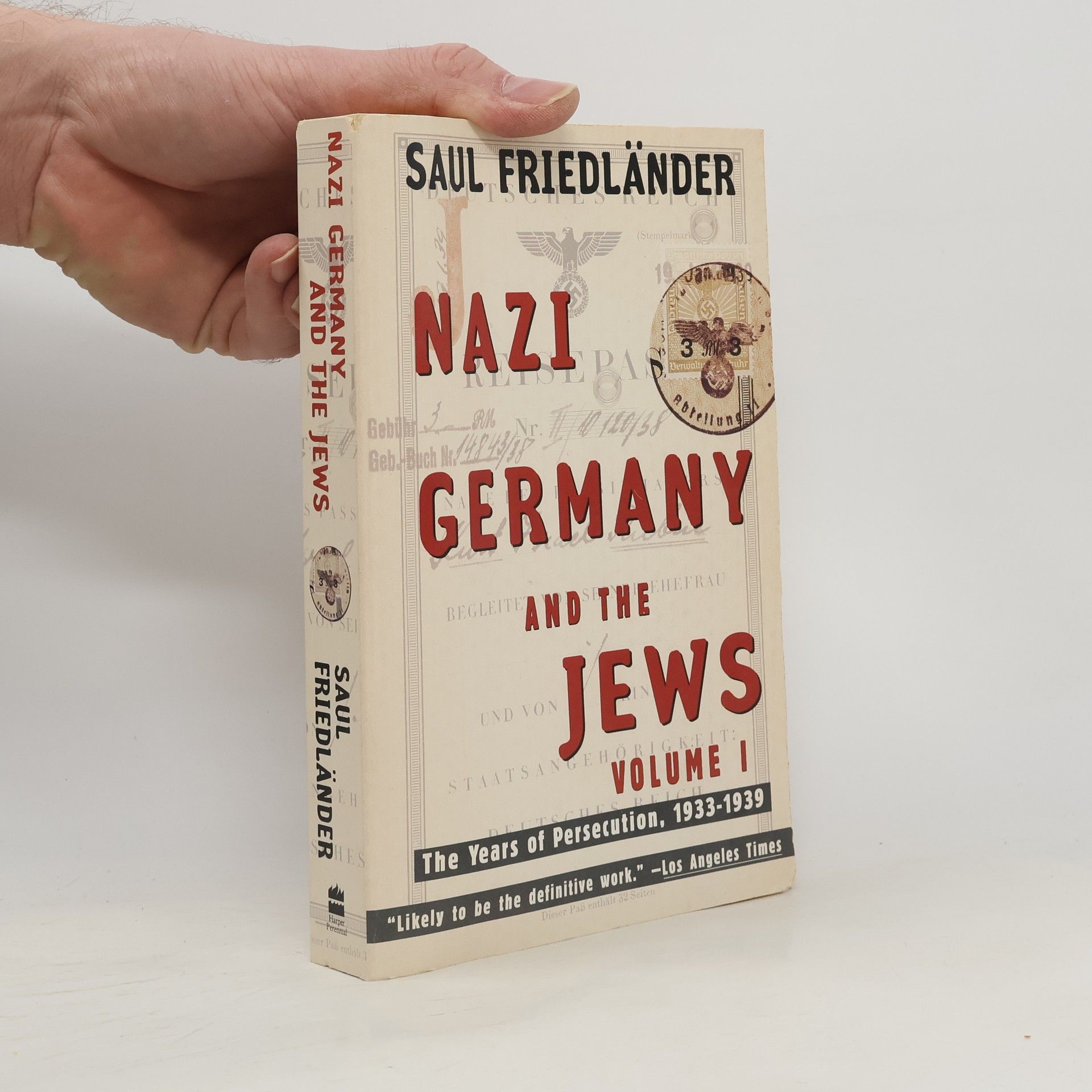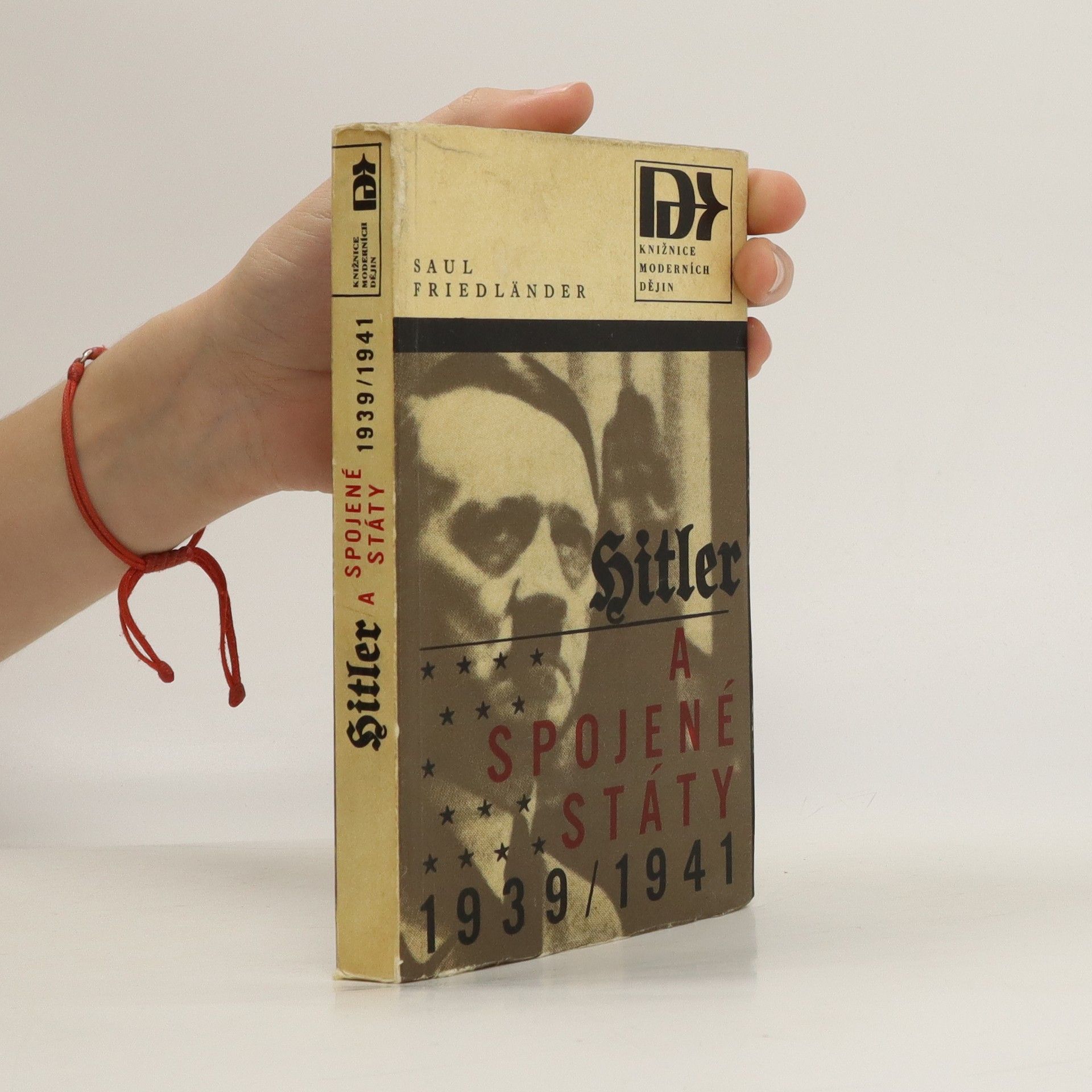Postoj papeže Pia XII. k Hitlerově říši a důvody jeho mlčení k systematickému vyhlazování evropských Židů vedly k stísňujícím otázkám a vášnivým polemikám. Tváří v tvář takovému problému si může historik stěží činit nároky na úplnou objektivitu. Ale i přes zmatení ducha vinou nejrůznějších a někdy i velmi podivných obvinění je možné spravedlivé bádání, jestliže se historik bude co nejvíce opírat o dokumenty. Právě tuto metodu zvolil autor při svém bádání. Autor prozkoumal uveřejněné sbírky britských a amerických listin, několik textů publikovaných Vatikánem, dosud neuveřejněné dokumenty Židovského světového kongresu a Sionistického archívu v Jeruzalémě, nepublikovaný dokument říšského kancléřství a především většinou neuveřejněné dokumenty ministerstva zahraničí třetí říše. Obsáhl období od března 1939, kdy byl zvolen papež Pius Xll., do září 1944. Publikovaný text dokumentů je doprovázen komentáři, jež osvětlují situaci, za níž vznikl. Dospívá k závěru, že až do roku 1944 měl papež v oblibě Německo a že se bál bolševizace Evropy. Z francouzského originálu „Pie XII. et le IIIe Reich: documents“ přeložil Jan Stehlík. Doslov „Diplomacie bez filosofie“ napsal Jaroslav Hranička. 1. vydání.
Saul Friedländer Knihy
Saul Friedländer je izraelsko-francouzský historik, jehož práce se hluboce zabývá složitými otázkami moderní historie. Jeho analytický přístup a důraz na detail osvětlují klíčové momenty 20. století. Friedländerův psaný projev je známý svou jasností a schopností zpřístupnit komplexní témata širšímu publiku. Jeho přínos k historickému poznání je zásadní pro pochopení nedávných událostí.







Nacistické Německo a Židé, 1933-1945
- 340 stránek
- 12 hodin čtení
Saul Friedländer, který se mimochodem narodil v Praze a unikl holokaustu, v této bohatě dokumentované knize odpovídá na otázku, jež vrhla temný stín na poválečný svět: jak mohl jeden z nejvyspělejších evropských národů vyhladit na šest milionů nevinných obětí? Dává přitom velké slovo přímým svědkům – nikoli pamětem, ty nebývají vždycky spolehlivé, ale dobovým deníkům a dopisům obětí i pachatelů, stejně jako oficiálním projevům a úředním výnosům. První část knihy, zabývající se národně socialistickou kampaní útlaku, přináší hlasy Židů, kteří se po nástupu nacistů ocitli ve stále více děsivé realitě. Druhá část pokrývá německou vyhlazovací politiku, která vedla k vraždě šesti milionů evropských Židů - oficiální program, který závisel na spolupráci místních úřadů a policejních útvarů, pasivitě obyvatelstva a ochotě obětí podlehnout zoufalé naději, že přežijete natolik dlouho, než uniknete německé svěráku. Kniha Nacistické Německo a Židé je základní studiem této temné a složité historie.
Nazi Germany and the Jews
- 482 stránek
- 17 hodin čtení
An abridged edition of Saul Friedlander's definitive two-volume history of the Holocaust: THE YEARS OF PERSECUTION and THE YEARS OF EXTERMINATION. Saul Friedlander's historical masterpiece is perhaps the richest examination of the Holocaust yet written, and, crucially, one that never loses sight of the experiences of individuals in its discussion of Nazi politics and the terrible statistics and technological and administrative sophistication of the Final Solution. The book's first part, dealing with the National Socialist campaign of oppression, restores the voices of Jews who were engulfed in an increasingly horrifying reality following the Nazi accession to power. Friedländer also provides the accounts of the persecutors themselves - and, perhaps most telling of all, the testimonies of ordinary German citizens. The second part covers the German extermination policies that resulted in the murder of six million European Jews.
A great historian crowns a lifetime of thought and research by answering a question that has haunted us for more than 50 years: How did one of the most industrially and culturally advanced nations in the world embark on and continue along the path leading to one of the most enormous criminal enterprises in history, the extermination of Europe's Jews?Giving considerable emphasis to a wealth of new archival findings, Saul Friedlander restores the voices of Jews who, after the 1933 Nazi accession to power, were engulfed in an increasingly horrifying reality. We hear from the persecutors themselves: the leaders of the Nazi party, the members of the Protestant and Catholic hierarchies, the university elites, and the heads of the business community. Most telling of all, perhaps, are the testimonies of ordinary German citizens, who in the main acquiesced to increasing waves of dismissals, segregation, humiliation, impoverishment, expulsion, and violence.
Where Memory Leads
- 304 stránek
- 11 hodin čtení
A Pulitzer Prize-winning historian returns to memoir in a tale of intellectual growth across three continents, published alongside his classic Holocaust literature. After forty years since his first poignant memoir, Friedlander bridges his childhood ordeals with his esteemed reputation in Holocaust studies. He abandons his youthful conversion to Catholicism, rediscovers his Jewish roots as a teenager, and builds a new life in Israeli politics. His initial loyalty to Israel evolves into a lifelong fascination with Jewish life and history. Friedlander grapples with the pervasive effects of European anti-Semitism while seeking a balanced approach to the surrounding Zionism. His adulthood sees him navigating between Israel, Europe, and the United States, equipped with his linguistic talent and expansive intellect. His growing prestige places him in the company of other intellectual giants. In his early years in Israel, he mingles with the architects of the nascent state and brilliant figures like Gershom Scholem and Carlo Ginzburg. This memoir prompts Friedlander to reflect on the harrowing events that led him to dedicate sixteen years to writing his Pulitzer Prize-winning work, exploring the Nazi regime and its impact on the Jewish community from 1939 to 1945.
Nazi Germany and the Jews, 1933-1945
- 512 stránek
- 18 hodin čtení
Nazi Germany and the Jews, 1933-1945 is an abridged edition of Saul Friedländer's definitive Pulitzer Prize-winning two-volume history of the Holocaust: Nazi Germany and the Jews: The Years of Persecution, 1933-1939 and The Years of Extermination: Nazi Germany and the Jews, 1939-1945. The book's first part, dealing with the National Socialist campaign of oppression, restores the voices of Jews who were engulfed in an increasingly horrifying reality following the Nazi accession to power. Friedländer also provides the accounts of the persecutors themselves—and, perhaps most telling of all, the testimonies of ordinary German citizens who, in general, stood silent and unmoved by the increasing waves of segregation, humiliation, impoverishment, and violence. The second part covers the German extermination policies that resulted in the murder of six million European Jews—an official program that depended upon the cooperation of local authorities and police departments, the passivity of the populations, and the willingness of the victims to submit in desperate hope of surviving long enough to escape the German vise. A monumental, multifaceted study now contained in a single volume, Saul Friedländer's Nazi Germany and the Jews, 1933-1945 is an essential study of a dark and complex history.
When Memory Comes
- 192 stránek
- 7 hodin čtení
A classic of Holocaust literature, the eloquent, acclaimed memoir of childhood by a Pulitzer-winning historian, now reissued with a new introduction by Claire Messud Four months before Hitler came to power, Saul Friedländer was born in Prague to a middle-class Jewish family. In 1939, seven-year-old Saul and his family were forced to flee to France, where they lived through the German Occupation, until his parents' ill-fated attempt to flee to Switzerland. They were able to hide their son in a Roman Catholic seminary before being sent to Auschwitz where they were killed. After an imposed religious conversion, young Saul began training for priesthood. The birth of Israel prompted his discovery of his Jewish past and his true identity. Friedländer brings his story movingly to life, shifting between his Israeli present and his European past with grace and restraint. His keen eye spares nothing, not even himself, as he explores the ways in which the loss of his parents, his conversion to Catholicism, and his deep-seated Jewish roots combined to shape him into the man he is today. Friedländer's retrospective view of his journey of grief and self-discovery provides readers with a rare experience: a memoir of feeling with intellectual backbone, in equal measure tender and insightful.
Proustian Uncertainties
- 176 stránek
- 7 hodin čtení
Named a Times Literary Supplement Best Book of the Year A Pulitzer Prize–winning historian revisits Marcel Proust’s masterpiece in this essay on literature and memory, exploring the question of identity—that of the novel’s narrator and Proust’s own. This engaging reexamination of In Search of Lost Time considers how the narrator defines himself, how this compares to what we know of Proust himself, and what the significance is of these various points of commonality and divergence. We know, for example, that the author did not hide his homosexuality, but the narrator did. Why the difference? We know that the narrator tried to marginalize his part-Jewish background. Does this reflect the author’s position, and how does the narrator handle what he tries, but does not manage, to dismiss? These are major questions raised by the text and reflected in the text, to which the author’s life doesn’t give obvious answers. The narrator’s reflections on time, on death, on memory, and on love are as many paths leading to the image of self that he projects. In Proustian Uncertainties, Saul Friedländer draws on his personal experience from a life spent investigating the ties between history and memory to offer a fresh perspective on the seminal work.
Franz Kafka
- 183 stránek
- 7 hodin čtení
Looks at that major aspects of Kafka's life—family, Judaism, love and sex, writing, illness and despair—and argues that, when reinserted in Kafka's letters and diaries, deleted segments lift the mask of "sainthood" frequently attached to the writer. 12,000 first printing.
